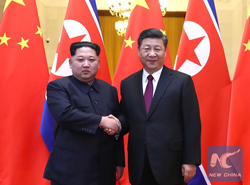Wednesday, Oct. 2 witnessed one of the largest first-round voting cycles in the Americas, just behind the United States, which concluded its second round of voting only a week ago. Brazil, a country of 214 million, and whose population is the second highest in the Americas and sixth in the world, began the process of choosing their future. Often divided, the nation’s two most popular candidates, Luiz Inácio Lula da Silva and Jair Bolsonaro, became more prominent after securing their first-round victories, with Lula da Silva continuing to secure another major win in Brazil’s second-round voting earlier last week.
Such a time in Brazil and Latin America acts as an important signifier to Americans who may feel that American democracy is in a heightened state of insecurity in regards to America’s democracy.
Serving from 2003 to 2010, Lula ran on social-democratic reforms, Lula’s previous administration created a stipend policy, called “Bolsa Familia”, to decrease poverty and child malnutrition while increasing security, housing development, and water purification efforts.
He left with an approval rating of about 80 percent, although Lula’s political history is not without disorder. A controversial trial in 2017 imprisoned Lula for nineteen months, but was later annulled in 2021.
Jair Bolsonaro’s career was in local offices and elections, and he has a military history acting as the Councilor of Rio de Janeiro and the district’s Federal Deputy from 1991 to 2018. Bolsonaro’s presidential term from 2018 up to the present was engaged with Brazil’s period of stagnation through the appraisal of militant positions in previous decades.
Bolsonaro’s presidency was most notable for its overseeing of industry trying to log the Amazon, a hands-off approach to COVID-19, a relaxed position on gun ownership, and intense restriction concerning matters of drug liberalization, same-sex marriage, and abortion.
Specialists have weighed in on how global elections affect American politics. In a time where the legitimacy of the democratic process at home is questioned, election integrity within the neighborhood of the Americas can give clarity to political integrity and legitimacy.
Kenneth Mitchell, Ph.D., Professor of Political Science and Sociology, studies Latin American politics and political economy as one of his primary research interests.
Mitchell lays out what Brazil’s election means for the political future in the United States, noting that “The result in Brazil produces [a] ‘divided government’…the consequences tend to be similar…and the norms and expectations it spawns helps [to] account for high levels of corruption and public distrust…It’s time to reflect on…Brazilian democracy…its courts, its independent…authority…survived…after a relentless effort to end …democracy…Bolsonaro promised…he would leave power ‘in a coffin’…threatened a military coup. In a country that operated under brutal military rule…threats are not idle…he trashed the legitimacy of…authority nonstop for over a year…What to expect from Lula 2.0? I expect a very Wall Street-friendly government since Bolsonaro…increased government spending…two years of tight budgetary policies lay ahead…environmentalists, cheering [Lula]…I think will be…disappointed…Leaders in Argentina…, and Mexico…are all pushing for more oil and gas drilling…[Lula’s] general economic policies will prioritize Brazilian economic interests…”
The political relations in Brazil and the US are similar in the division between their voter bases, and whose influences lay out a potential pathway of politics and stability through such comparisons of the parties and their interactions in nations like Brazil and the US, with national bodies and institutions. The political infrastructure in Brazil remains on course to commit to its proper functions and exercise of power in the face of political division.
Another perspective comes from Sam Maynard, Ph.D., Instructor in the Department of Political Science and Sociology, who prompted the rise of populism and its development as a part of a global phenomenon; Lula and Bolsonaro are both establishment candidates, the former more so than the latter.
For Maynard, one of the main takeaways for understanding politics is the relationship of how institutions, such as the media, in turn, shape politics itself, given this new expression of populism, “…media, [and]…stakes, are heavily informed by the United States context…one of the interesting things is that…it’s kind of quiet in the morning after the elections…After the 2020 election, there’s…a playbook in denying election [results]…but that has not happened in Brazil. Maybe Brazilian democracy is safer…one thing that is notable about the Brazilian case is…[its] institutions…[In the US] it fell onto…state bureaucrats…there are not as many opportunities to tip the scale in Brazil where it’s federal.”
One of the changes that separate elections in Brazil and the US is how elections are determined; in the US, elections are verified at a state level whose votes are cast, whereas in Brazil there is validation conducted by their Supreme Court.
Much like the US, parties and politics are also about figures, continues Maynard, “The fragmentation in Brazil makes parties weak…[Lula’s party] is a recent exception…it’s about Lula versus Bolsonaro, at the end of the day.”
Commonality between the US and Brazil, within their political spirit and international influences, can give the American people more clarity about the direction of democracy. The role of institutions as a concurring theme exists in securing the democratic principles both countries uphold.



